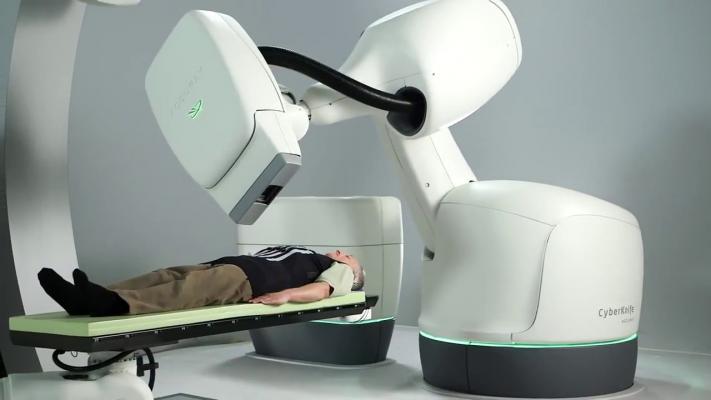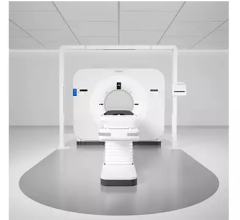
Image courtesy of Accuray inc.
February 24, 2015 — Accuray Inc. and Lancaster General Health announced that the first commercially available InCise multileaf collimator (MLC) for the CyberKnife M6 System has been received by Lancaster. The hospital selected the InCise MLC based on its ability to increase the system's treatment efficiency and extend its unique capabilities to a broader range of patient cases.
Evaluation of the InCise MLC with the CyberKnife M6 system has been successfully completed by two U.S. sites. Accuray conducted a rigorous evaluation of the device covering a wide range of functionality, performance, reliability and serviceability parameters. The collimator successfully met all predetermined criteria to the company's and the sites' full satisfaction.
The InCise MLC is the world’s first multileaf collimator to be available on a robotic platform. The system was designed to deliver extremely precise stereotactic body radiation therapy (SBRT). Using its robotic range of motion and continuous image guidance, the system follows the target throughout the treatment process, delivering individualized treatment with sub-millimeter precision. The CyberKnife M6 System can be used to treat tumors anywhere in the body, including the prostate, lung, brain, spine, liver, pancreas and kidney, and may offer hope to patients who have inoperable or surgically complex tumors, or who may prefer a clinically effective, non-surgical option.
"We look forward to treating our first patient using the newly configured CyberKnife M6 System. With the MLC we expect to reduce SBRT treatment times without sacrificing the precision we've come to expect from the system," said Jeffrey Eshleman, M.D., director of radiation oncology, Lancaster General Health. "In addition, the InCise MLC will expand patient access to SBRT to those people who previously may not have been eligible due to the size or type of their tumor. SBRT is typically a much shorter course of treatment than conventional radiation therapy. It has the potential to reduce the overall cost of patient care, and discomfort and scheduling inconvenience for the patient, versus conventional treatment."
For more information: www.accuray.com


 April 21, 2025
April 21, 2025 








